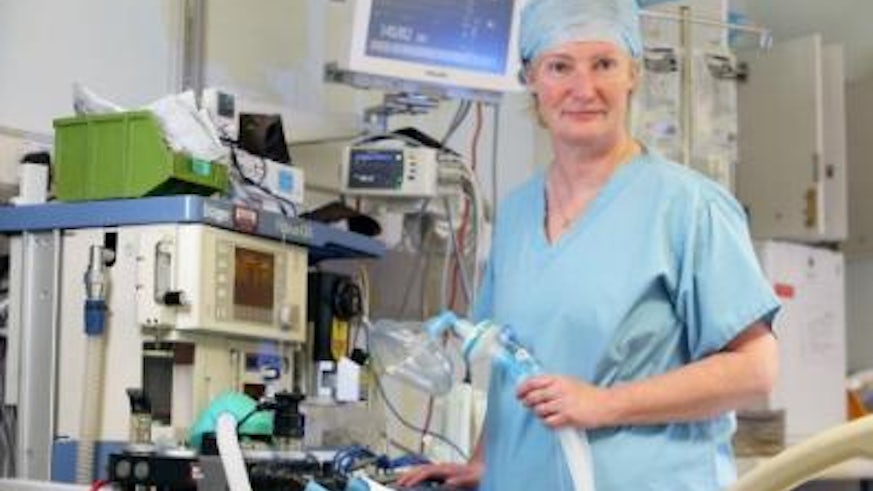‘I’ve seen the tragedy of a mum dying and losing her twins’
30 January 2015

Life-saving medical procedures are being taught in a sub-Saharan African country for the first time thanks to one of the University's flagship engagement projects.
Namibia has just two part-time medically qualified anaesthetists for a population of more than two million people.
But the University is working with the University of Namibia to change that.
Medical officers and students will start the first of three intensive anaesthesia courses on 2 February in the Namibian capital, Windhoek.
It is the forerunner to a four-year post-graduate anaesthesia course, the first ever in the country.
Professor Judith Hall, who is leading the project, said: "Mums die, babies die. I know, I've seen it happen throughout Africa. I've seen a woman travelling eight hours to get to a hospital for help and then die on arrival. And the baby died too.
"I've seen the tragedy of a mum dying herself and losing her twins because she's travelled so far, lost so much blood and got an overwhelming infection.
"I've seen tiny babies die because mum has malaria and there aren't staff to resuscitate and treat mum and baby. When you're used to things going right here in Wales, it's terrible, shocking in fact, to see this complete waste of young lives."
The training is part of the University's Phoenix Project, one of five flagship community engagement projects that aims to transform lives in communities.
The three intensive anaesthesia training courses will run in three locations in Namibia: Windhoek, Rundu and Oshakati.
The first in Windhoek will provide training for up to a total of 18 students and medical staff over two weeks.
The other courses will run later this year.
Professor Hall says the training will save lives.
"This is very significant because previously there's been no formal training of anaesthetists in Namibia," she said.
"There's no post-graduate education at all in Namibia and generally doctors have learned on the job.
"It's no good having the equipment if you haven't got trained doctors.
"People travel huge distances for health care and they die on the way."
Professor Hall will train the medical officers and students alongside two other Wales-based senior anaesthetists.
The intensive courses have been given financial support by the Tropical Health and Education Trust, a global health organisation which improves training for health workers in poorer countries.
The Phoenix Project will then take the training further by setting up Namibia's first ever post-graduate qualification in anaesthesia in conjunction with the University of Namibia.
Phoenix's schemes include everything from training medical staff and boosting health communications, to strengthening local languages and increasing maths skills among students.
The project has won the support of Namibia's Deputy Health and Social Services Minister, The Hon. Petrina Haingura.